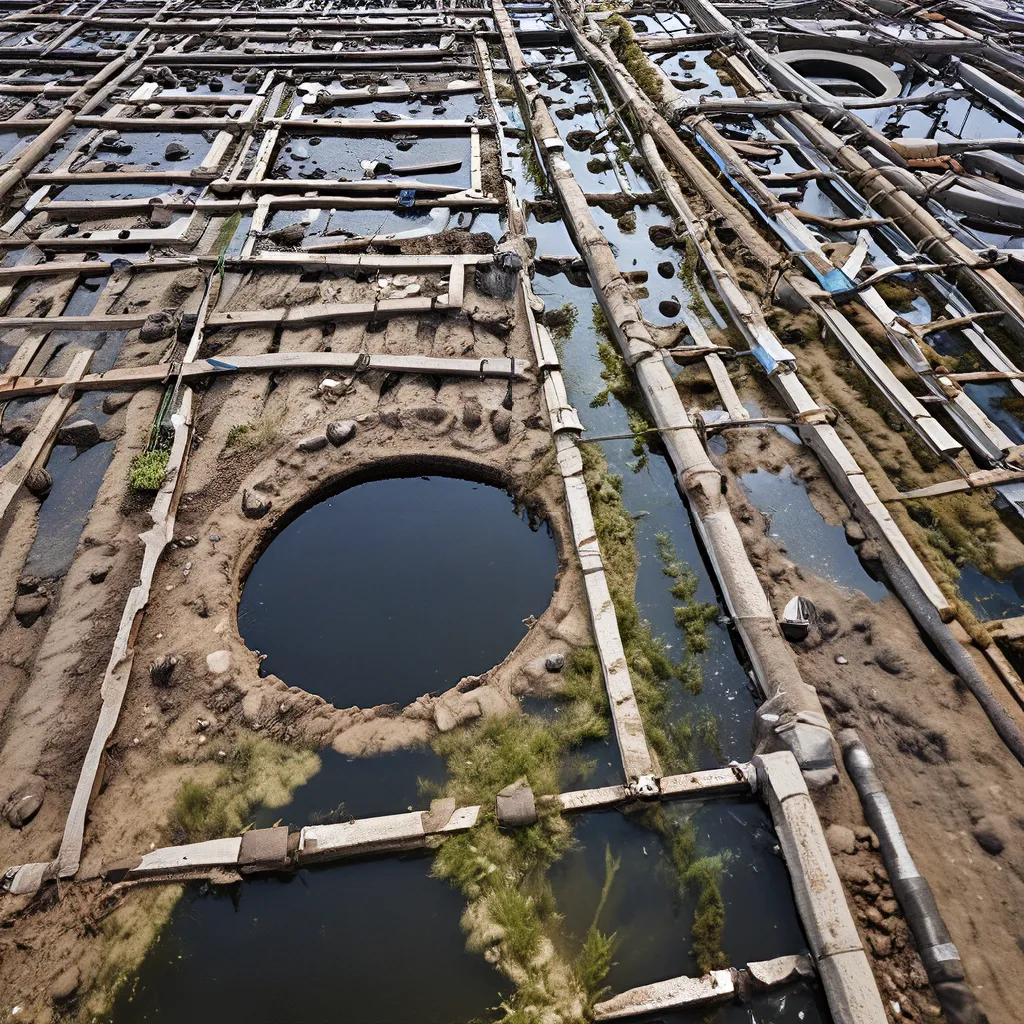
Ah, the urban food-energy-water nexus – now there’s a mouthful! But don’t worry, my friend, I’m here to break it down for you in a way that’s as clear as freshly treated wastewater. Buckle up, because we’re about to dive deep into this complex web of interconnections that’s shaping the future of our cities.
The Urbanization Tidal Wave
Did you know that by 2050, a staggering 66% of the global population is predicted to live in urban areas? That’s a mind-boggling statistic, and it’s putting a massive strain on the already delicate balance of our food, energy, and water systems.
As cities continue to grow and evolve, the demand for food, energy, and water is skyrocketing. And let me tell you, these three resources are about as intertwined as a bowl of spaghetti. You can’t have one without the other, and that’s where the real challenge comes in.
The Thirsty, Hungry, and Power-Hungry City
Just think about it – food production requires water and energy, water treatment and distribution needs energy, and energy generation often relies on water. It’s a never-ending loop that’s only going to get more complex as urbanization continues its relentless march.
And let’s not forget about the environmental impacts. All this demand for resources is taking a toll on our planet, with greenhouse gas emissions, land degradation, and water scarcity becoming increasingly serious issues.
But you know what they say – where there’s a problem, there’s an opportunity. And that’s exactly what we’re seeing in the world of urban wastewater treatment. Wastewater is no longer just a waste product – it’s a valuable resource that can be harnessed to support the food-energy-water nexus.
Wastewater: The Unsung Hero
Think about it – wastewater treatment plants can produce renewable energy, reclaimed water for irrigation, and even valuable nutrients for agricultural use. It’s a triple-threat that can help cities become more self-sufficient and sustainable.
And let me tell you, the folks over at Alpha Wastewater are leading the charge when it comes to unlocking the potential of urban wastewater. They’re not just treating the stuff – they’re turning it into a resource that can power our cities, feed our people, and protect our environment.
A Sustainable Future Starts with Wastewater
Imagine a world where wastewater treatment plants are hubs of renewable energy production, water recycling, and nutrient recovery. Where cities are no longer just consumers of resources, but active participants in a closed-loop system that minimizes waste and maximizes efficiency.
That’s the kind of future that the team at Alpha Wastewater is working towards. And let me tell you, it’s not just a pipe dream – it’s a real, tangible solution to the challenges posed by the urban food-energy-water nexus.
But it’s going to take more than just the efforts of a few wastewater experts. It’s going to take a collaborative effort from city planners, policymakers, and community members alike. Because when it comes to building a sustainable urban future, we’re all in this together.
Breaking Down the Barriers
Now, I know what you’re thinking – “But wait, isn’t wastewater, well, kind of gross?” And I get it, the idea of recycling and reusing wastewater can be a tough pill to swallow for some. But the truth is, modern wastewater treatment technology has come a long way, and the end product is often cleaner and safer than the water that comes straight out of our taps.
And let’s not forget about the economic benefits of this approach. Harnessing wastewater as a resource can save cities millions in energy and water costs, not to mention the potential revenue streams from selling things like renewable energy and reclaimed water.
But the real game-changer, in my opinion, is the environmental impact. By closing the loop on our urban resource use, we can reduce greenhouse gas emissions, preserve precious water resources, and promote sustainable agriculture. It’s a win-win-win situation that’s just too good to ignore.
Closing the Loop
So, what does the future of urban wastewater treatment look like? Well, if you ask me, it’s a future where cities are self-sustaining ecosystems, where wastewater is seen as a valuable resource rather than a waste product, and where the food-energy-water nexus is seamlessly integrated.
And you know what? I think we’re already well on our way. With innovative technologies, forward-thinking policies, and a whole lot of community buy-in, the team at Alpha Wastewater is helping to pave the way for a more sustainable urban future.
So, what are you waiting for? Let’s dive in and be part of the solution! Because when it comes to the urban food-energy-water nexus, the future is bright, sustainable, and flushed** with potential.